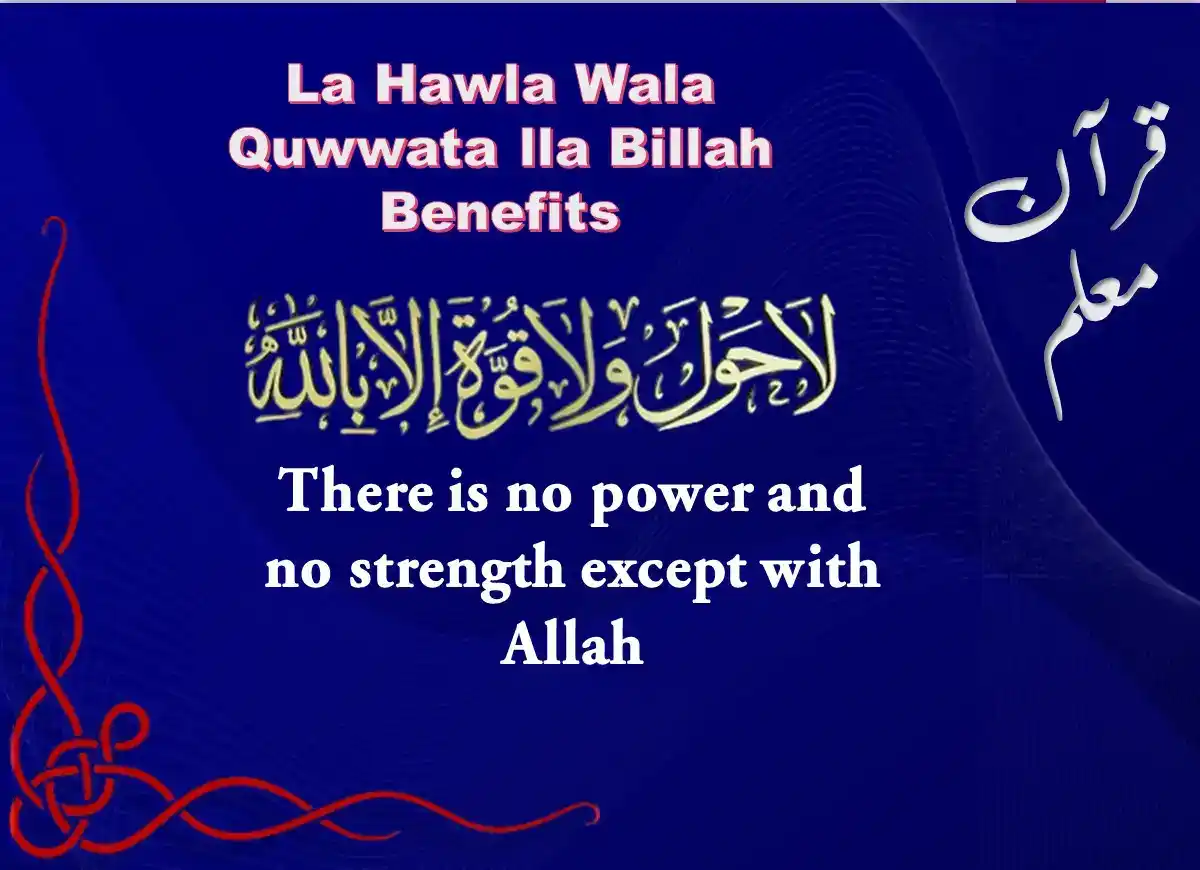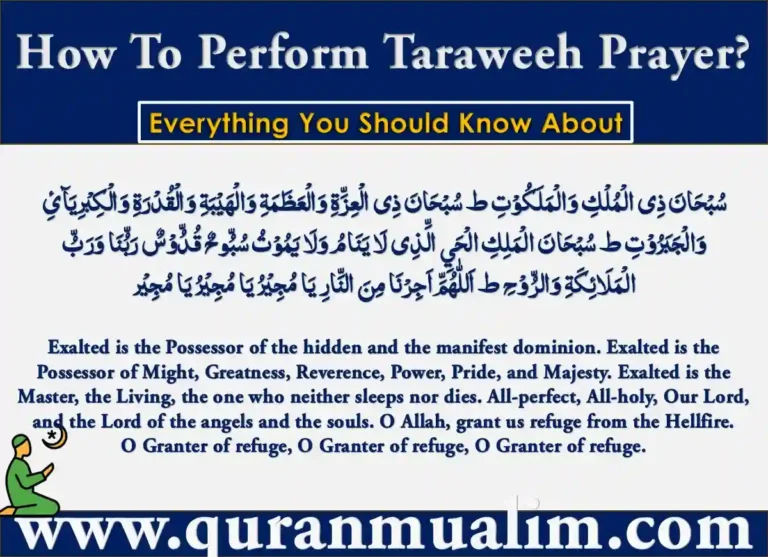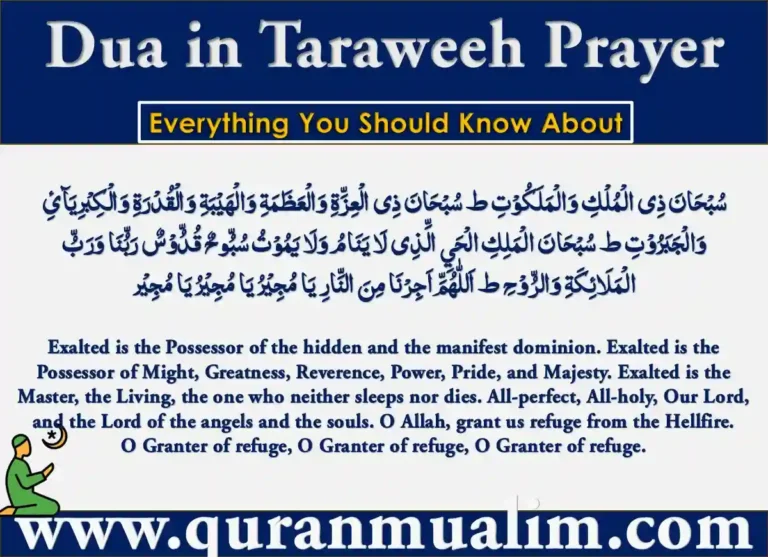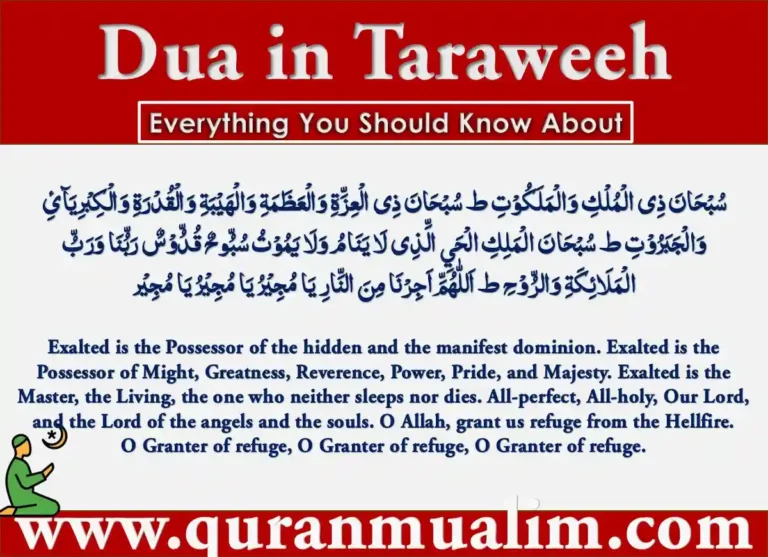La Hawla Wala Quwwata illa Billah Benefits, also known as Hawqala, is a deep Islamic recollection that denotes total dependence on Allah for everything. Translated as “There is no power and no strength except with Allah,” it expresses the conviction that Allah’s will is the only source of all life’s transformations and the capacity to act or resist.
The Prophet Muhammad (peace be upon him) taught that this phrase is one of the treasures of Paradise and stressed the need of chanting it often. It represents surrender, giving Allah control over one’s circumstances, and acknowledging one’s powerlessness without His assistance.
Reciting La Hawla Wala Quwwata Illa Billah has several advantages. It erases sins, provides protection and direction, and is regarded as a portal to Paradise. During times of worship, such as in response to the call to prayer, after concluding prayers, upon leaving the house, and before going to bed, the phrase is especially recommended.
The importance of La Hawla Wala Quwwata Illa Billah is sometimes misinterpreted because it is intended for asking Allah for assistance rather than just in difficult or disastrous circumstances. Believers deepen their relationship with Allah and recognize their reliance on His heavenly assistance by reciting Hawqala on a regular basis.
La Hawla Wala Quwwata illa Billah Benefits:
La Hawla Wala Quwwata Illa Billah is a phrase that offers great spiritual advantages and is a treasure of paradise. It becomes a portal to Paradise, establishes trees there, and receives heavenly pardon. This potent prayer increases dependence on Allah, confirms His unity, offers safety, and fortifies faith. Frequent recitation links believers to Allah’s almighty support and innumerable bounties.
Those who visit the Hawqalah can reap a number of advantages and rewards, including the following:
Categories: Namaz ,Zakat , Roza & Prayer , Hadith
1. It Is One of Paradise’s Beauties
Hazim bin Harmalah is claimed to have stated, “I passed by the Prophet (saas) and he said to me: O Hazim, say often: ” La Hawla Wala Quwwata illa Billah Benefits (there is no power and no strength except with Allah),” for it is one of the treasures of Paradise.”
2. You’ll Be Rewarded A Tree In Paradise Every Time You Say It
According to a story told by Abu Ayyoub al-Ansari, the Prophet Muhammad (peace and blessings of Allah) said, “I met Abraham on the night I was brought up to paradise, and he remarked, “Who is with you, Jibreel.” Jibreel answered, “This is Muhammad.”
3. It Is One of The Gates of Paradise
According to Muadh bin Jabal, may Allah be pleased with him, the Prophet Muhammad, peace be upon him, remarked, “Shall I not direct you to one of the gates of Paradise?” “What is it?” he asked. La hawla wala quwwata illa billah (there is no power and no strength except with Allah), he declared.
4. It Forgives Your Sins
Some dhikr contain the phrase “La hawla wala quwwata illa billah,” which means “there is no power and no strength except with Allah.” A person’s sins will be pardoned if they say them.
5. An Expression of Seeking Allah’s Help
“La Hawla Wala Quwwata Illa Billah” is a proclamation of asking Allah for assistance and recognizing that only He has strength and might. When a believer encounters obstacles in life, this remark serves as a reminder that depending on Allah guarantees direction and assistance in overcoming hardships.
6. Affirmation of Tawheed (Oneness of Allah)
All three types of Tawheed (the Oneness of Allah) are affirmed when one says “La Hawla Wala Quwwata Illa Billah.” First of all, it embodies Tawheed Al-Rububiyyah, which recognizes Allah as the universe’s only Creator, Sustainer, and Controller. Second, it includes Tawheed Al-Asma Wa Al-Sifat, which acknowledges Allah’s flawless and distinctive qualities, like His strength and might.
7. Encourages Reliance and Trust in Allah
The statement exhorts believers to put all their trust in Allah and give Him control over everything. It serves as a reminder that they are helpless without Allah’s assistance and that giving their life to Him is the path to real achievement. Because it releases a person from worrying about situations outside of their control, this reliance promotes inner calm.
8. Brings Divine Assistance
The Prophet ﷺ advised responding with “La Hawla Wala Quwwata Illa Billah” when the muezzin shouts “Hayya ‘ala al-Salah” and “Hayya ‘ala al-Falah” during the Adhan (call to prayer). In order to pray and succeed, this response asks Allah for help.
Conclusion:
In Islam, La Hawla Wala Quwwata Illa Billah, or Hawqala, has great spiritual significance since it represents the believer’s total dependence on Allah for support and direction. Translating to “There is no power and no strength except with Allah,” it serves as a reminder of both the limitations of humanity and the omnipotence of divine power.
Arabic Prayers For You:
- Dua For Animals in Pain
- Safe Delivery: Dua For Childbirth
- Powerful Dua For Infants For Protection
- A Path To Victory: Dua For Exam Success
- The Key to Freedom: Dua For Debt Relief
- Entering With Peace: Dua For Graveyard
- A Path To Victory: Dua For Exam Success
- Unlock Joy Dua For Happiness and Success
- Sleep in Peace: Dua For Difficulty Sleeping
- Blessings of Thankfulness Dua For Gratitude
- Success: Dua For Exam Success and Memory
- Calm Your Mind: Dua For Exams and Success
- Before You Search Dua For Finding Lost Items
- The Path To Integrity: Dua For Good Character
- Heavenly Blessings Dua For Ghusl After Periods
- Arabic Prayer With Transliteration and Meaning
- Learn Common Arabic Greetings And Responses
- Authentic Dua For increase in Rizq and Blessings
- Blessed Eternal Peace and Healing: Dua For Cure
- They’re Gone—But Dua For A Loved One Who Died
- The Key To Purity: Dua For Ghusl After Menstruation
- Tahajjud Dua – Prophetic Supplications For Night Prayer








